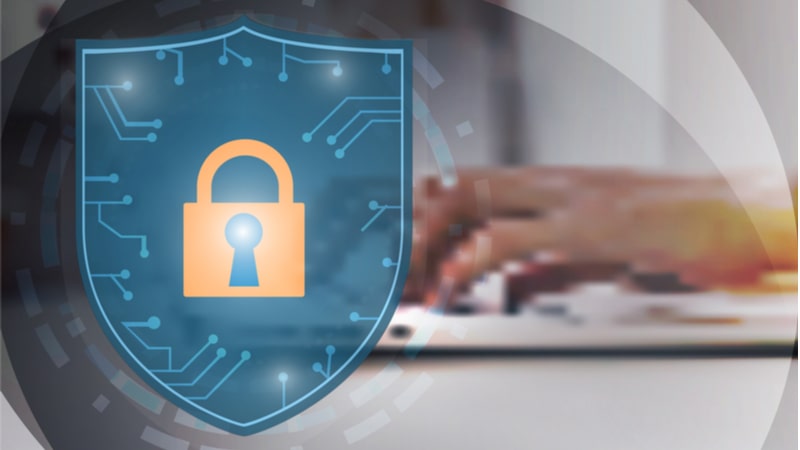
The Senate Committee on Homeland Security and Governmental Affairs signed off on a number of cybersecurity-related bills and a Department of Homeland Security (DHS) supply chain bill during an August 4 business meeting, sending the bills to the Senate floor for a vote.
The six bills include:
The Deepfake Task Force Act
The Deepfake Task Force Act, introduced by Sens. Gary Peters, D-Mich., and Rob Portman, R-Ohio, would create a new task force at DHS to combat deepfake technologies. The senators said the task force would include experts from academia and the public and private sectors.
“The spread of disinformation through deepfakes continues to be a highly concerning national security threat with the potential to divide our nation and harm the American people,” Chairman Peters said. “I’m pleased this bill has advanced in the Senate and will continue working to ensure its swift passage into law so we can fight back against bad actors who spread lies to create chaos and dysfunction that threatens our communities.”
The Artificial Intelligence Training for the Acquisition Workforce Act
The Artificial Intelligence Training for the Acquisition Workforce Act, introduced by Sens. Peters and Portman, aims to improve the Federal workforce’s understanding of AI and ensure its ethical and safe use.
The legislation would create a training program that would help Federal employees responsible for purchasing AI technologies better understand its risks and benefits. The legislation would require the director of the Office of Management and Budget (OMB) to provide, and regularly update, the AI training program.
“We need a Federal acquisition workforce that understands AI, how it works, how it can help the government run better, and the ways we can fix the problems with AI systems so those procurement professionals can know they are buying the right AI systems for the government,” said Ranking Member Portman. “That’s why I applaud the Senate Homeland Security and Governmental Affairs Committee for passing this bipartisan bill to establish the kind of AI training program our acquisition workforce needs and I urge my colleagues to support this bipartisan legislation when it comes to the Senate floor for a vote.”
The State and Local Government Cybersecurity Act
The State and Local Government Cybersecurity Act introduced by Sens. Peters and Portman would promote stronger cybersecurity coordination between the Department of Homeland Security (DHS) and state and local governments.
The legislation would provide state and local governments with information and resources to prevent and respond to cyberattacks.
“Cash-strapped state and local governments often don’t have the expertise or resources needed to identify weak points in their networks that hackers can exploit. As cybercriminals continue targeting the networks of state, local, tribal, and territorial governments – it’s critical the Federal government provides them with the tools to fight back, protect sensitive information, and ensure they can continue to serve their residents,” said Chairman Peters.
The Cybersecurity Opportunity Act
The Cybersecurity Opportunity Act, introduced by Sen. Jon Ossoff, D-Ga., aims to improve cybersecurity education through the distribution of grants from DHS.
“The lack of qualified cybersecurity professionals is a national security vulnerability for this country,” Sen. Ossoff said during the business meeting. “This legislation empowers the Department of Homeland Security to award grants to institutions of higher education that have an enrollment of needy students, and to historically black colleges and universities and minority-serving institutions to establish and expand cybersecurity programs that will help these institutions produce qualified entrance into the cybersecurity workforce, and help these institutions become national centers of academic excellence in cybersecurity.”
The DHS Industrial Control Systems Capabilities Enhancement Act of 2021
The DHS Industrial Control Systems Capabilities Enhancement Act of 2021, introduced by Sens. Peters, Mark Rubio, R-Fla., Rob Portman, R-Ohio, and Mark Warner, D-Va., would solidify the Cybersecurity and Infrastructure Security Agency’s (CISA) lead role in protecting critical infrastructure – particularly industrial control systems – from cyber threats.
If enacted, the bill would amend the Homeland Security Act to require the director of CISA to maintain capabilities to detect and mitigate threats and vulnerabilities affecting automated control of critical infrastructure.
The Domains Critical to Homeland Security Act
The Domains Critical to Homeland Security Act, introduced by Chairman Peters, would direct DHS to research supply chain vulnerabilities that threaten homeland security and strengthen critical supply chains.
“As we saw recently with the shortage of semiconductor chips that hurt autoworkers and manufacturers across Michigan and the shortage of critical medical supplies during the pandemic, our nation’s overreliance on foreign manufacturers for critical supplies is a grave national security and economic risk for the American people,” said Chairman Peters. “I will continue working to move this important legislation forward so we can help Federal agencies and Congress support increased domestic production of critical supplies, create good-paying American jobs, and protect our national security.”
